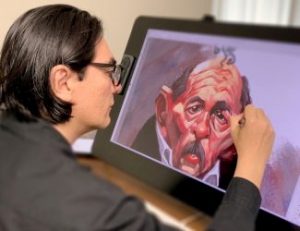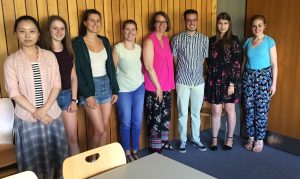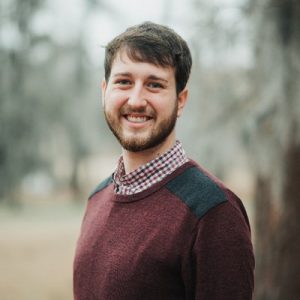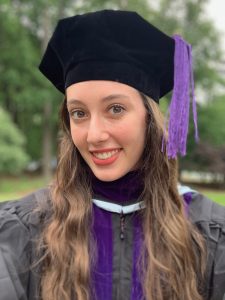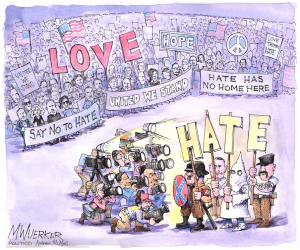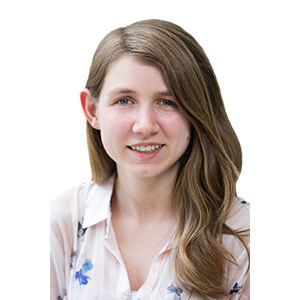 Editor’s Note: Our media law graduate students are a huge part of the Center’s success. Over the next few weeks, we’ll be featuring the stories of current and past students as we lead up to the tenth anniversary of the UNC MA/JD program in 2020. Stay tuned for more details about that celebration.
Editor’s Note: Our media law graduate students are a huge part of the Center’s success. Over the next few weeks, we’ll be featuring the stories of current and past students as we lead up to the tenth anniversary of the UNC MA/JD program in 2020. Stay tuned for more details about that celebration.
by Ashley Fox
UNC MA/JD student (’21) and CITAP Fellow
This summer, I interned for the Office of Information Policy (OIP) at the United States Department of Justice (DOJ) in Washington D.C. OIP oversees federal agency compliance with the Freedom of Information Act (FOIA). To further this mission, the Office holds regular FOIA trainings for federal employees who are tasked with completing initial requests from the public, publishes and updates government-wide guidance on the FOIA, adjudicates administrative appeals for initial requests originating within the DOJ, and reviews annual reports from all federal agencies detailing their compliance with the FOIA. OIP is organized into four teams related to initial requests, appeals, litigation, and compliance.
During my internship, I primarily worked with the Appeals Team within OIP. There, I gained first-hand experience working within the administrative process by adjudicating administrative appeals on various FOIA issues, ranging from a DOJ component’s failure to respond to an initial request to a requester’s claim that FOIA exemptions were applied incorrectly. Moreover, I learned how some FOIA related disputes move beyond the administrative appeals process by conducting legal research for an ongoing FOIA litigation. Throughout these experiences, I really enjoyed seeing how attorneys within OIP carefully weigh the government’s desire to protect certain information against the public’s interest in disclosure while applying the language of the FOIA itself.
To support OIP’s goal of ensuring FOIA compliance by providing educational resources, I also attended multiple FOIA training sessions, assisted in publishing recent FOIA related court decisions on the office’s webpage, and assisted in updating OIP’s FOIA guidance to reflect changes in the law. Additionally, I reviewed proposed congressional legislation’s potential impacts on the FOIA and recommended comment from OIP to Congress when needed.
The summer internship program at OIP was wonderfully supportive. Each summer, OIP typically hires three to four legal interns through the DOJ’s larger Summer Law Intern Program (SLIP), which recruits law students for internships in various DOJ components. Although interns primarily work with one team within OIP, we had numerous opportunities to work with each team and collaborate with each other. The attorneys within OIP were enthusiastically invested in helping interns develop professionally, and they happily shared their own career journeys. I thoroughly enjoyed working with everyone within OIP, and I would highly recommend this internship to students interested in administrative law, access to information, and government transparency.

